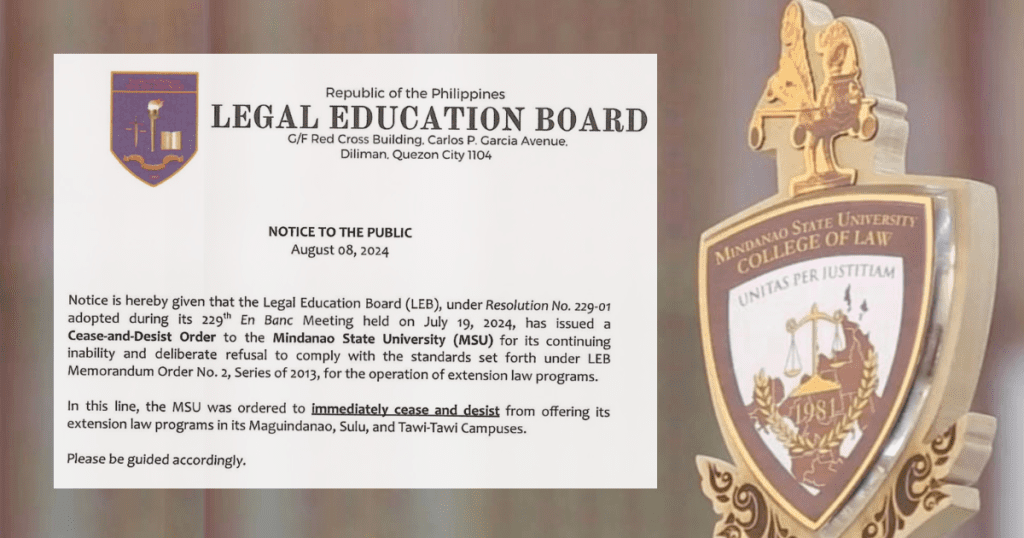
The Mindanao State University stood firm on its law program, citing its charter that exempts it from the Legal Education Board’s jurisdiction. Photo by The EdLines using MSU and LEB materials.
The Mindanao State University (MSU) announced on September 7 that it will persist in offering law degrees across its campuses, defying a cease-and-desist order from the Legal Education Board (LEB) that seeks to revoke its accreditation.
MSU maintains that the LEB lacks jurisdiction over its law programs, citing its charter established by Congress under Republic Act No. 1387 as the basis for its continued operation.
The LEB’s resolution, issued on August 8, orders MSU to stop its law extension programs over alleged non-compliance with regulations, a claim the university strongly disputes.
“The LEB cannot act now as Congress and amend the MSU Charter by ordering the closure of its law programs,” MSU said in a statement.
The Board expressed concern over what it described as MSU’s “dismal” performance in the bar examinations, noting the school’s passing rate since 2013 has been below the national average.
However, MSU argued that its College of Law is exempted from LEB’s coverage. Republic Act No. 7662 specifies that only schools under the supervision of the Department of Education, Culture and Sports at the time of the law’s passage in 1993 fall within LEB’s jurisdiction.
“MSU will not allow this to happen as it will wreak havoc in Muslim Mindanao and destroy the gains of MSU’s decades of peace-building in the discharge of its trilogy of functions of instruction, research and extension,” the university said.
MSU asserted that its law extension programs in Maguindanao, Sulu, and Tawi-Tawi will continue to operate by order of the MSU System President and upon the authority of the MSU Board of Regents.
The LEB is an independent government agency responsible for the regulation of legal education in the country.
The Board said that while the bar exam is not the only measure of a law school’s fitness to operate, it is the only “tangible and independent” evidence it could rely on since the university has refused to submit to its supervision.


